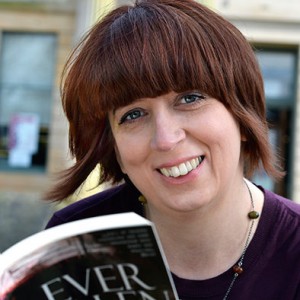 On Thursday 20th November, author Zoë Strachan paid us a visit as part of our visiting speaker series. Based in Glasgow, Zoë has three published novels: Negative Space (Picador), Spin Cycle (Picador) and Ever Fallen in Love (Sandstone). She also writes short stories, plays, libretti and essays and is a lecturer for the University of Glasgow’s Creative Writing programme.
On Thursday 20th November, author Zoë Strachan paid us a visit as part of our visiting speaker series. Based in Glasgow, Zoë has three published novels: Negative Space (Picador), Spin Cycle (Picador) and Ever Fallen in Love (Sandstone). She also writes short stories, plays, libretti and essays and is a lecturer for the University of Glasgow’s Creative Writing programme.
To start off, Zoë discussed how the publishing industry has changed since the publication of her first novel in 1999. Her first experience of publishing was of an incestuous world: everyone knew everyone and you needed connections to get your foot in the door. With the support of her literary agent David Miller, she was able to sign a two book deal with Picador.
Next, Zoë discussed the pros and cons of working with a large publisher like Picador. Picador had many valuable resources and her book was heavily copy-edited to a high standard. However, there were several staff changes during the development of her first novel that left her with three different editors throughout the process. She had a much better experience with her second novel and described her editor as an ally who “really made me think, really challenged me.” She also stated, “If you’ve got a good editor, a good publisher…it is a tremendous privilege.”
Zoë’s third novel was published with Sandstone Press after being rejected by Picador. She said there was less money involved than Picador, but as a small publisher Sandstone was able to give her much more support and personalised attention.
To the aspiring author, Zoë gave some hopeful advice: “You just have to get your manuscript on the desk of one person who opens it, gets it and likes it. Only one person has to like it.”
Zoë’s talk was delightful and informative and provided us with insight into the publishing process through the eyes of authors. Moreover, she praised the role of publishers as supporters and gatekeepers, a refreshing sentiment to hear in a time when many are questioning the role of traditional publishers.